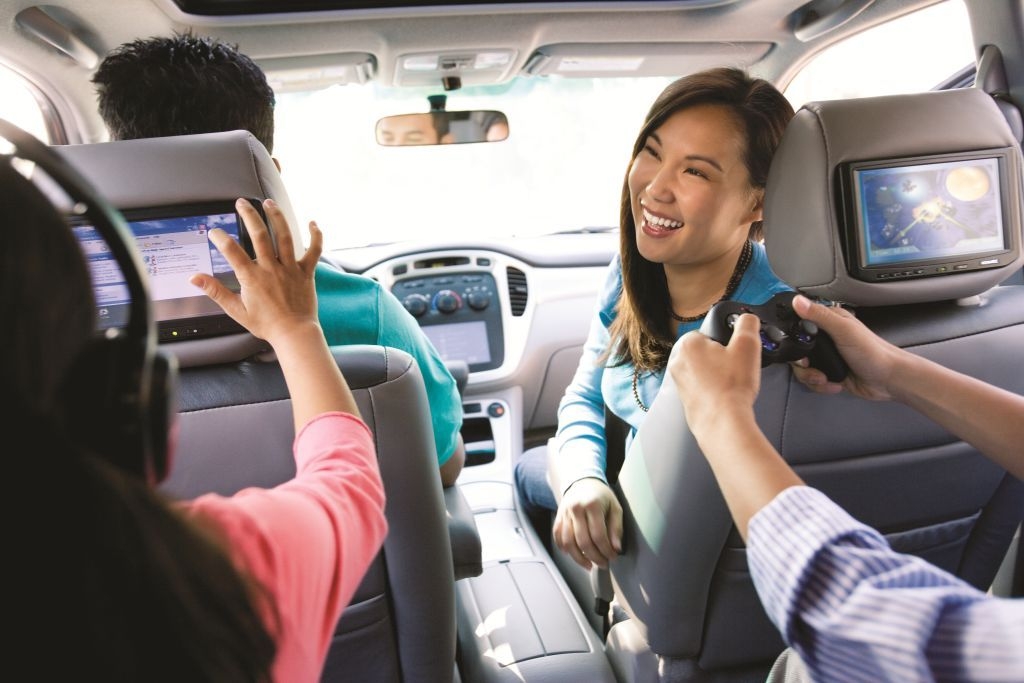
Electronic Gizmos and Family Travel: Can They Co-exist?
By: Alisa Abecassis, Founder of ExploreAll50.com
Alisa Abecassis is the proud mother of three children – Lilia, 17; Isaac, 15; and Joel, 14. After her marriage ended, she decided it was time to strengthen her family’s bonds and personal history by traveling across all 50 U.S. states. Abecassis’ website – http://www.exploreall50.com/ –is filled with resources for family travel in America, as well as other groups and individuals. Abecassis has a bachelor’s degree in political science from UCLA. Connect with her on Twitter @ExploreAll50
Should kids be allowed to be connected electronically when the family travels? How much is too much and what limits are appropriate?
As a mom of three teenagers aged 17, 15 and 14, I have watched my kids get sucked into the vortex that is social media. I can hardly blame them as media technology has swept over society like an electronic tsunami. Any news item at all is followed in real time as it happens and even the most trivial post can go viral – seen by millions worldwide in an instant if the masses deem it worthy. Kids and adults are tethered to their smartphones, using them for anything and everything – the least of which is making actual calls. My, how things have changed. When I was my kid’s age, any communication that wasn’t done face-to-face was done over the phone in my room. If I wasn’t in my room, I was out of luck, cut off from my friends, completely oblivious to what was happening – having to rely solely on my memory to share information until I had the opportunity to do so when I got home (and got my photos back from developing).
Today, the world is a completely different place. Every impression can be posted instantly, liked, commented on, shared with friends, tweeted, re-tweeted and Instagrammed, and that’s just for starters. What’s truly mind-boggling as a parent is how knowledgeable and proficient my kids are at all of this. So the question is: do we let the kids stay connected electronically when on a family trip, or force them to shut down and reconnect the old-fashioned way? What place, if any, do electronics have on a family road trip?
A little downtime is okay. Kids need to learn to entertain themselves.
When the kids were small, I did not allow those DVD players in the car that are hooked up to the back of the front row of seats so the kiddies can watch cartoons to pass the time while driving. I don’t believe every free moment needs to be filled with television or anything that takes us outside of reality, which in my opinion does not allow kids to figure out how to entertain themselves. I like to use travel time in the car to talk about what we’ve seen or where we’re going, listen and sing along to music, and most importantly look out the window at the passing landscape. Being on the road is not just about the stops and fun activities, it’s also understanding similarities and differences as we drive from place to place.
Understand it’s impossible to disconnect completely, but it’s important to set limits.
As a seasoned traveler with children. I have watched this issue snowball over time. As the kids have gotten older, they spend infinitely more time connecting and engaging over their smartphones. As a parent, I have always preached moderation to my kids in whatever they do: eating sweets, watching television, and a host of other things. The important thing I want my kids to learn is how to set their own limits. In this day and age, it’s pretty difficult to disconnect kids from the phenomenon of social media in the electronic age, but it is important to let kids know that it’s not all-access-all-the-time. I don’t allow cell phone use during meals, either at home or when we travel. I also don’t allow cell phone use during activities when we travel unless the kids are sharing something they have learned or find really interesting. I explained to my kids that burying themselves in their cell phones during activities on our road trips is disrespectful to me, the person who planned and paid for the activity – something that I felt they would benefit from and enjoy. My kids get that, but that’s because I’ve made a point of having a conversation about it. I’ve taken the time to explain to them why it’s wrong – not telling them, chastising them, or even embarrassing them, but explaining it to them. The biggest mistake we make as parents is underestimating our kid’s capacity to understand.
Embrace the technology; it could be your kids who come to your rescue.
On our most recent summer road trip to New England, I found myself relying more and more on my kids to help navigate where we were going – even finding our way back in a sticky situation when we were lost. On our first evening in Boston, we walked a good two miles from our hotel to the harbor to watch the fireworks. There were throngs of people and most of the roads were blocked off surrounding the area for security purposes. After the show, there was a mass exodus as people headed out of the area. In our excitement to secure a good spot, we hadn’t made mental notes to retrace our steps back to the hotel and found ourselves lost and confused in the huge moving crowd. The kids and I made it to a corner and the three of them whipped out their cell phones and using various apps figured out where we were and where we needed to go to get back. I am sure I could have figured it out on my own in time, but they were infinitely faster at it and more efficient than I would ever be. I was quite proud of them and it eased my mind to know that if they ever found themselves alone in a similar situation, they could rely on their electronic tools to find their way.
Technology is the future. there is no denying that, but what’s important is making sure your kids know when it’s appropriate to use and when it’s not. They don’t need to be tethered to their phone at all times and usually a conversation that results in an understanding about limits is all that’s required. They need to understand the beauty of real life in the here and now and real dialogue as a family are as important as that viral video that everyone is sharing. But as parents, we also need to understand that is the norm of how kids communicate. We need to embrace the positives like sharing what they’ve seen and learned on family trips, and engaging them to use their powerful electronic tools when their help is required. With that kind of understanding, a great deal of stress can be eliminated between kids and parents when it comes to electronics on the road.











